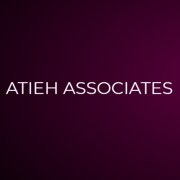Best Sustainable Finance Lawyers in Tehran
Share your needs with us, get contacted by law firms.
Free. Takes 2 min.
List of the best lawyers in Tehran, Iran
About Sustainable Finance Law in Tehran, Iran
Sustainable finance in Tehran, Iran refers to financial activities that support environmental protection, social responsibility, and economic development in a way that meets present needs without compromising the ability of future generations. This area of law combines principles from finance, environmental policy, social governance, and regulatory compliance. In recent years, there has been growing attention on introducing policies that encourage Islamic finance instruments like sukuk and green bonds, focusing investments in renewable energy, sustainable infrastructure, and environmentally friendly projects.
Why You May Need a Lawyer
Sustainable finance can involve complex regulatory frameworks and increasing compliance requirements. You may need a lawyer if you are:
- Establishing a business or project seeking sustainable finance or investment in Tehran
- Issuing or investing in green bonds, sukuk, or other Sharia-compliant financial instruments
- Faced with environmental, social, or governance (ESG) compliance concerns or due diligence requests
- Interacting with authorities regarding licensing, permits, or environmental impact assessments
- Negotiating with investors demanding sustainability criteria
- Dealing with disputes over sustainable development projects
- Responding to inquiries or enforcement actions from government agencies or regulatory bodies
A lawyer familiar with Iranian laws and sustainable finance can help you understand your obligations, navigate complex documentation, and mitigate legal risks.
Local Laws Overview
Sustainable finance in Tehran is influenced by a mix of domestic laws, Islamic finance principles, and Iran's commitments under international agreements. Some important aspects include:
- Environmental Protection Laws: Regulations require certain projects to undergo environmental impact assessments. Laws also set standards for pollution control and natural resource management.
- Capital Market Regulations: The Securities and Exchange Organization (SEO) regulates the issuance of bonds and sukuk, including green bonds aimed at financing sustainable projects.
- Central Bank Regulations: The Central Bank of Iran oversees financial activities to ensure compliance with Sharia law, transparency, and risk management standards.
- Iranian Corporate Law: Companies may need to include sustainability reporting and adopt ESG compliance measures to attract investors or meet regulatory expectations.
- International Obligations: Iran participates in select international frameworks focusing on environmental protection, such as ratified agreements on climate change or biodiversity, which can indirectly impact local projects and finance.
Frequently Asked Questions
What is sustainable finance?
Sustainable finance refers to investing and lending practices that consider environmental, social, and governance (ESG) factors to create long-term value and support sustainable development.
How is sustainable finance different from traditional finance in Iran?
Sustainable finance in Iran emphasizes projects that deliver social or environmental benefits, often using Islamic finance tools, whereas traditional finance focuses primarily on financial returns.
What types of financial instruments are available for sustainable projects in Tehran?
Common instruments include green sukuk, green bonds, and ESG-linked loans, all adhering to Sharia principles and local regulations.
Are there government incentives for sustainable finance in Tehran?
Some incentives and subsidies may be available for renewable energy, energy efficiency, and pollution reduction projects, but these can change frequently and should be confirmed with official bodies.
Do Iranian laws mandate environmental impact assessments for projects?
Yes, certain large-scale or potentially polluting projects are required by law to undergo official environmental impact assessments before receiving permits.
What is the role of the Securities and Exchange Organization (SEO) in sustainable finance?
The SEO regulates the issuance, sale, and trading of financial securities like green bonds and sukuk, ensuring compliance with sustainability standards and transparency requirements.
Can foreign investors participate in sustainable finance in Tehran?
Yes, but foreign investment is subject to additional regulations, sanction considerations, and may require local partnerships or approvals from relevant authorities.
How are Sharia principles applied to sustainable finance?
Financial instruments must comply with Islamic law, which emphasizes risk-sharing, prohibits interest-based returns, and often aligns with ethical investing principles.
What legal risks can arise in sustainable finance projects?
Legal risks include regulatory non-compliance, contract disputes, failure to meet ESG criteria, and changes in government policy or international sanctions.
How can a lawyer help with sustainable finance projects?
A lawyer can provide due diligence, draft and review contracts, ensure regulatory compliance, represent clients before government agencies, and resolve legal disputes.
Additional Resources
If you need information or assistance related to sustainable finance in Tehran, consider consulting the following organizations:
- Securities and Exchange Organization (SEO): Regulates securities markets and financial instruments, including those for sustainable projects.
- Central Bank of Iran: Oversees banking and monetary regulation, including policies relevant to sustainable finance.
- Department of Environment (DoE) Iran: Responsible for enforcing environmental laws, assessments, and compliance standards.
- Iran Chamber of Commerce, Industries, Mines, and Agriculture: Offers resources and legal advice for business projects, including sustainability initiatives.
- Law firms and consulting firms specializing in finance or environmental law: Provide tailored legal advice and representation for sustainable finance matters.
Next Steps
If you believe you need legal assistance with a sustainable finance matter in Tehran, consider these steps:
- Identify the specific nature of your project or legal need and gather relevant documents.
- Research local laws and recent regulations related to sustainable finance in Iran.
- Consult with a lawyer or legal consultant who specializes in finance, environmental, or corporate law and has experience with sustainability and ESG.
- Prepare questions or concerns to discuss during your initial consultation.
- Work closely with your legal advisor to prepare documentation, assess compliance, and address any risks or disputes as they arise.
Taking these steps early can help you avoid costly errors, ensure regulatory compliance, and support the long-term success of your sustainable finance activities in Tehran, Iran.
Lawzana helps you find the best lawyers and law firms in Tehran through a curated and pre-screened list of qualified legal professionals. Our platform offers rankings and detailed profiles of attorneys and law firms, allowing you to compare based on practice areas, including Sustainable Finance, experience, and client feedback.
Each profile includes a description of the firm's areas of practice, client reviews, team members and partners, year of establishment, spoken languages, office locations, contact information, social media presence, and any published articles or resources. Most firms on our platform speak English and are experienced in both local and international legal matters.
Get a quote from top-rated law firms in Tehran, Iran — quickly, securely, and without unnecessary hassle.
Disclaimer:
The information provided on this page is for general informational purposes only and does not constitute legal advice. While we strive to ensure the accuracy and relevance of the content, legal information may change over time, and interpretations of the law can vary. You should always consult with a qualified legal professional for advice specific to your situation.
We disclaim all liability for actions taken or not taken based on the content of this page. If you believe any information is incorrect or outdated, please contact us, and we will review and update it where appropriate.
















